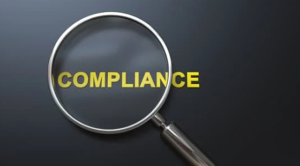
Navigating the complex world of mental and behavioral health billing can be a daunting task. Multiple factors contribute to this complexity, including regulation changes, varying insurance policies, and the need for specialized software. In this article, we will discuss common billing challenges faced by mental and behavioral health professionals and explore strategies to handle these hurdles effectively.
Understanding the Differences in Billing
One of the first steps towards successful billing in mental and behavioral health is understanding the differences between medical billing and mental health billing. Unlike medical healthcare, mental and behavioral health services require a higher amount of documentation and stricter adherence to compliance regulations. To delve deeper into these differences, refer to this blog post on the topic.
Staying Informed About Regulation Changes
Keeping up-to-date with the ever-changing mental and behavioral health regulations is crucial. These changes can have a significant impact on billing procedures and reimbursement rates. It is essential to monitor relevant regulatory bodies, such as the Centers for Medicare and Medicaid Services (CMS), to ensure compliance and stay abreast of the latest industry news.
Adopting the Right Billing Software
Utilizing appropriate behavioral health billing software can significantly streamline the billing process and ensure accurate record-keeping. These specialized software solutions help in managing claims, tracking reimbursements, and verifying insurance eligibility. Additionally, they often integrate with electronic health record (EHR) systems to ensure a seamless flow of information between patient records and billing activities.
Training and Support for Staff
Investing in staff training is another vital aspect of addressing billing challenges. Equip your team with the knowledge and resources to stay up-to-date on industry developments and recurring billing adjustments. Consider providing access to webinars, seminars, or workshops hosted by billing experts or professional organizations.
Auditing and Monitoring for Errors
Implementing efficient error tracking and auditing processes is essential in preventing costly mistakes. Regular billing audits can identify trends, uncover inconsistencies, and help pinpoint areas for improvement in the overall billing process. By instituting a thorough review process, your practice can reduce denied or delayed claims and enhance revenue collection.
Building Relationships with Payers
Cultivating strong working relationships with insurance payers is vital in mental and behavioral health billing. Keeping an open line of communication with payer representatives can help resolve issues quickly and efficiently. Additionally, it allows mental health professionals to stay informed of payer-specific requirements and changes in reimbursement policies.
To Wrap Up
Managing mental and behavioral health billing challenges is an ongoing process requiring continued education, effective tools, and open communication. By understanding the differences in billing, adopting specialized software, providing proper staff training, and fostering relationships with insurers, your practice can excel in navigating the complex world of mental and behavioral health billing. Thank you for reading!





